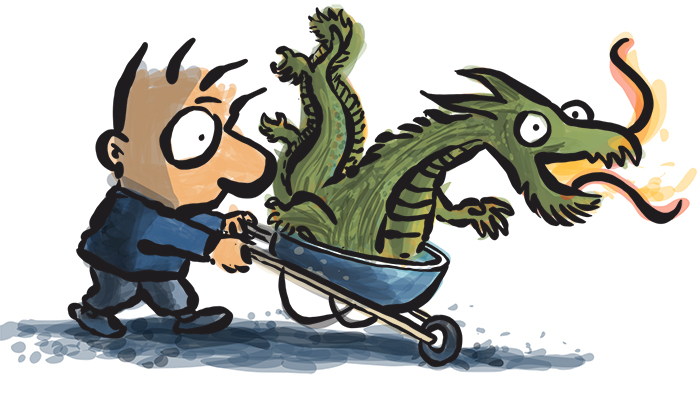
Are optimists more successful than pessimists?
What sort of entrepreneur do well in business? And especially when there is chaos.
Imagine you are a prisoner of war. You're thrown into an isolation space, not just for a week, or month, but for an entire year. All the while you're being tortured and despair seems to be around you.
Should you continue to stay optimistic?
James Stockdale thought otherwise. The optimists don't do well at all. What does well, you may ask and how you keep going if you don't have optimism? Find out the paradox that made Stockdale survive and thrive.
Right click to save this episode.
The Hanoi Hilton isn't the name of a hotel. Instead, it's a name of a prison camp where torture was common.
It was in this prison that Admiral James Stockdale spent his years from 1965-1973. However, Stockdale wasn't just any prisoner. He was the highest ranking US military officer in a camp where there were no prisoner rights, no set release date and no hope that any prisoner would even get out alive. What's more is that the Vietnamese were keen to use the prisoners as propaganda.
How do you keep your sanity in a world with no hope?
The short answer would be optimism, wouldn't it? As things are falling apart around you, isn't it optimism that keeps us sane? Author Jim Collins, in his book “Good to Great” asked Stockdale this question: Who didn't make it out? “Oh, that's easy,” said Stockdale. “It was the optimists.”
“The optimists were the ones who said, “we're going to be out by Christmas. Christmas came and went. Then they'd say, “we're going to be out by Easter” and Easter would come and it would go. The optimists would pin their dates on Thanksgiving, then Christmas again, and eventually “they died of a broken heart”.
“You must never confuse faith that you will prevail in the end. Instead you need to confront the the most brutal facts of your reality, whatever they might be.” And that's precisely what Stockdale did to survive unbroken.
At one point, he beat himself up with a stool and cut himself with a razor, so he could not be on videotape as an example of a “well-treated prisoner”. He somehow managed to exchange secret intelligence with his wife through his letters, fully knowing that he could be tortured or put to death.
He instituted rules for dealing with torture giving a stepwise system where they would hold out for certain minutes before giving a little bit of information, then another x. number of minutes before giving another piece of information. To reduce the sense of isolation he instituted an elaborate system of communication which used a five-by-five matrix of tap codes.
And this is what Stockdale said to Jim Collins: “I never lost faith in the end of the story. I never doubted not only that I would get out, but also that I would get out; that I would prevail in the end and turn the experience into the defining event of my life, which in retrospect, I would not trade.”
The paradox is that optimism may seem to be the right way, but it's a bit of a sugar rush.
When the future is brazenly unpredictable, the only way out is to create systems of sanity. And the fact that you will prevail in the end, because you're taking steps to last out the journey, no matter how long and difficult. Best of all, it's not a distraction. Instead it's a defining event. It makes you a better person overall. Which is all very fine, but what about the economy?
If the economy crashes, won't it be impossible to revitalise it again?
Not really. The last worldwide disaster we had was World War II. The post–World War II economic expansion, also known as the golden age of capitalism and the postwar economic boom or simply the long boom, was a broad period of worldwide economic expansion beginning after World War II and ending with the 1973–1975 recession.
The United States, Soviet Union, Western European and East Asian countries in particular experienced unusually high and sustained growth, together with full employment.
Contrary to early predictions, this high growth also included many countries that had been devastated by the war, such as Japan (Japanese economic miracle), West Germany and Austria (Wirtschaftswunder), South Korea (Miracle on the Han River), France (Trente Glorieuses), Italy (Italian economic miracle) and Greece (Greek economic miracle).
The question isn't whether things will get better or worse
It could get a lot worse before it gets better. Wars that expected to last just weeks, went on for years. Any disruption on such a massive scale will be further inflamed by indiscipline. But in the end you have to prevail. The optimism only goes so far. Making a plan to survive and come out better, is a much better deal overall.
We will not get out before Christmas. Deal with it!

When did you write this Sean? … it’s appropriate for the pandemic now. My favourite sentence is ”The optimism only goes so far. Making a plan to survive and come out better, is a much better deal overall.”
I would call myself an optimist – a positive person but this article made me re-think that.
Last week I decided that the pandemic and all that it entails won’t be over for 18 months to 2 years … so I decided not to just wait for it to be over but to take action/ have plans.
As you said ”Making a plan to survive and come out better, is a much better deal overall.”